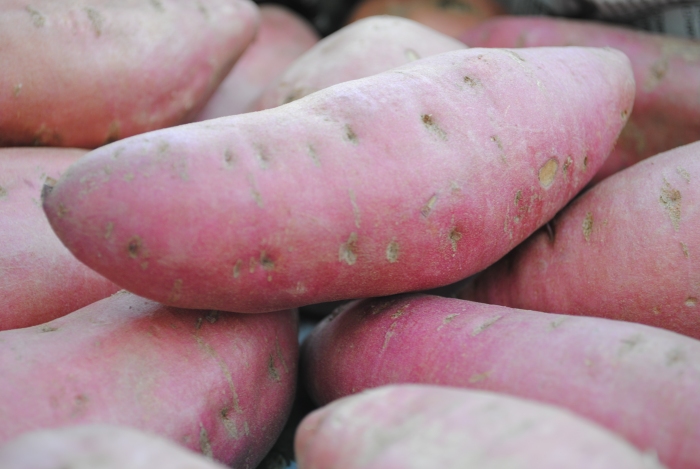 Sweetpotato farmers in Kabondo area located in Homa Bay County and who produce over 60 percent of the crop to the county are managing to plant the crop in time using superior quality thanks to a rapid seed multiplication system.
Sweetpotato farmers in Kabondo area located in Homa Bay County and who produce over 60 percent of the crop to the county are managing to plant the crop in time using superior quality thanks to a rapid seed multiplication system.
Kabondo’s sweetpotato farmers plant at the beginning of the rainy season. At this time, large amounts of sweetpotato vines, the typical planting material, are needed, but not available in the necessary quantities. Therefore, with the onset of the rains, vines from the previous season that the farmers have stored are placed into the ground and multiplied to obtain the quantity of planting material needed. Since this process requires a few weeks, precious time is lost.
If the sweetpotatoes could already be planted at the very beginning of the rainy season, the growing period would be longer and yields would be higher. Also, the repeated use of planting material over several seasons decreases productivity, since seed-borne diseases affect its quality. An initiative by the USAID-funded Kenya Horticulture Competitiveness Project (KHCP) and the Kenya Agricultural Research Institute (KARI) helps to address these bottlenecks through the implementation of a rapid seed multiplication system.
On a field at the farm of Mr. Mzee Okoyo, vines are grown and multiplied ahead of the rainy season. This becomes possible through the use of drip irrigation technology, fed from a water reservoir, which is filled with rainwater. Mr. Okoyo grows a selection of traditional and improved varieties, among them high yielding orange-fleshed sweetpotatoes (OFSP) and other varieties received from CIP and KARI, and sells the vine cuttings to his fellow farmers. 95 of them visit him regularly to get better planting material in a timely manner. All in all, he has sold over 700,000 cuttings for planting in the region’s fields during the past three years.
Production has been positively affected, not only because the possibility to make full use of the growing season helps to increase yields, but also because the better quality of Mr. Okoyo’s cuttings mitigates the negative effects of seed degeneration, and because the availability of larger quantities of vines allows farmers to plant larger areas.
The challenge for the future is to scale up such efforts. “If, for example, more farmers can carry out some rapid multiplication on their own farms, the timely availability of planting materials can be further improved. Food security, nutrition and income will be enhanced and Kabondo will play an even more important role as Kenya’s principal sweetpotato producer,” said Dr. Athanus Omondi who has been involved in the project.
















Comments powered by CComment